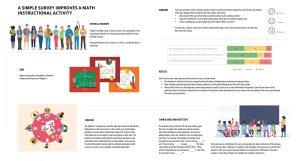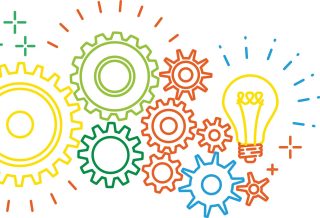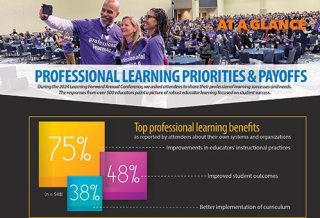IDEAS
Practical measures make data timely and useful
By Andrew Brannegan and Sola Takahashi
Categories: Data, Improvement science/networksApril 2023
Educators have long been awash in a sea of standardized test score data, with the understanding that their engagement with these data will lead to improvement in teaching and learning. But, in practice, these data have often been too infrequent, too lagging, and too distant from day-to-day practice to inform actionable next steps.
To improve practice, the data that educators can really benefit from are practical measures — those they can use to try out new strategies, get quick feedback, reflect and learn, make modifications, and start the cycle again.
Practical measurement is a process through which educators capture and analyze targeted data in a light-touch way so they can reflect on their practices and consider next steps and actions. Practical measures can provide valuable and timely information to identify systemic breakdowns, focus educators’ attention on aspects of practice that matter, propel improvement efforts from one stage to the next, and build confidence in changes that have been tried and are showing promise. They provide opportunities for educators to learn what works, what doesn’t work, and how to get certain ideas to work.
What makes a measure practical? Such measures are:
- Closely connected to specific aspects of practice, rather than being focused on broad outcomes;
- Easy for an educator to administer without extensive training, time, or resources; and
- Collected regularly with a quick turnaround time.
Educators in the Networks for School Improvement, funded by the Bill & Melinda Gates Foundation to increase positive educational outcomes for Black and Latino students and students experiencing poverty, have used practical measures to better understand and adapt their practices. Download the pdf here to see a visual representation of how one network uses practical measures to inform its continuous improvement efforts and see results.
WestEd supports networks
Since 2020, WestEd has been working with math-focused Networks for School Improvement to support them in their use of measures to inform continuous improvement. WestEd has developed a repository of math practical measures and is collaborating with networks to develop practical measures of math teachers’ professional learning and classroom equity. This project has also entailed facilitating professional learning and peer learning for network leaders on the use of measurement for improvement.
To learn more about practical measurement and see a repository of practical measures focused on middle grades math, click here.

Download pdf here.
Categories: Data, Improvement science/networks
Recent Issues
LEARNING DESIGNS
February 2025
How we learn influences what we learn. This issue shares essential...
BUILDING BRIDGES
December 2024
Students benefit when educators bridge the continuum of professional...
CURRICULUM-BASED PROFESSIONAL LEARNING
October 2024
High-quality curriculum requires skilled educators to put it into...
LEARNING TO PIVOT
August 2024
Sometimes new information and situations call for major change. This issue...














